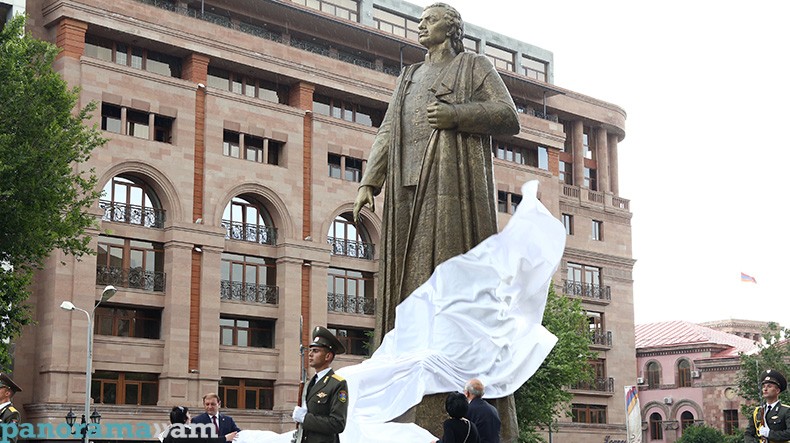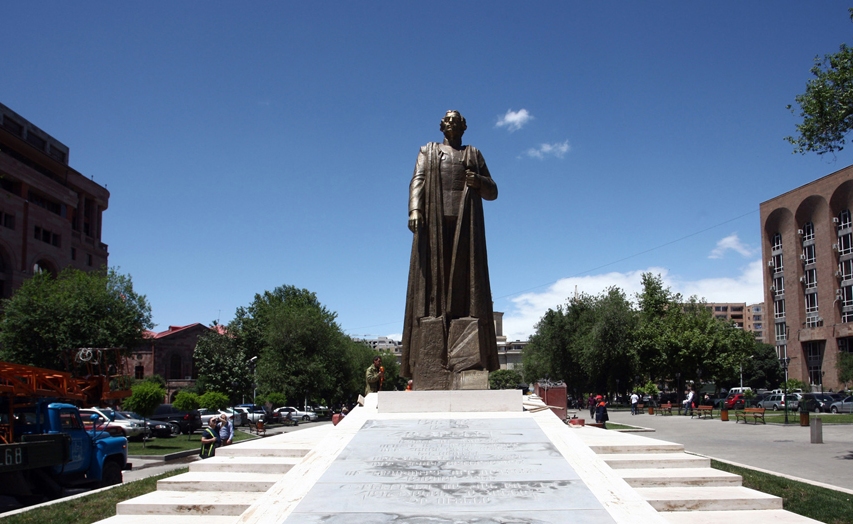31.05.2016
Balkan Insight
Council of Europe’s Rights Commissioner says Balkan countries face major challenge as they change from transit routes to destination countries.
Niels Muiznieks, the Council of Europe’s Commissioner for Human Right, on Tuesday issued a paper on the integration of migrants in Europe, mostly coming from the Middle East, such as Syria and Iraq.
In the paper, he identified the main problems with the integration of migrants into European societies as lack of language courses within the receiving countries, non-adapted education systems for migrant children, over-complicated procedures of reunifying migrant families, long-lasting procedures of attaining citizenship and low employment rates for migrant workers.
Regarding Balkan countries, which in the past functioned solely as transit countries on the migrants’ route westwards, Muizienks told BIRN that the biggest challenge was that they were now becoming destination countries as well.
“The Western Balkan countries have traditionally seen themselves as transit countries but they are slowly becoming destination countries ‘by default,’” he said.
This means that integration policies and inclusive education in particular will have to be prioritised by governments in the region “to make it work,” he said.
Muiznieks emphasised that integration in education is the outstanding challenge.
Previously implemented towards “Roma and children with disabilities”, it will be a challenge to introduce inclusive education for migrant children as well, “taking care that they get the attention they need to thrive academically”, especially in those parts of the Balkans where school programs are divided on an ethnic or language basis.
Muiznieks explained that the process of integration of migrants is bound to be complicated in each country that founds itself in this position for the first time.
“In the Western Balkans you have a combination of other factors. One is a kind of fragile ethnic relations, which can suffer from the rise of xenophobic movements or anti-migrant sentiment,” he said.
“Also, you don’t have any experience in accepting a significant number of migrants and don’t have a lot of resources to do so,” he added.
However, he underlined that integration can be introduced even in countries with limited resources, noting the case of Portugal, by applying good policies.
In Croatia, an EU member state through which over 650,000 migrants have passed recently, he said migrant reception facilities were adequate.
However, “a lot of work needs to be done in terms of coordinating between ministries to provide language training and integration,” he noted.
Regarding Bulgaria, Muiznieks, said that integration was slowly improving, describing it as a country “which was caught by surprise by a large influx of people coming”.
Mentioning the vigilante groups that catch migrants and transfer them over the border in Bulgaria, he emphasised that the deputy minister for migration had condemned such acts, which undermine the work of the state.
“But there are others who are either neutral or slightly positive about these vigilantes, and that’s quite a dangerous thing; no one should be encouraged to take the law in its own hands,” he said.
Bulgaria, like other countries, needs to work on managing a crisis it had no prior experience of, he opined.
“One of the factors feeding into the rise of far-right populist movements is the lack of integration policies,” he observed.
“It feeds the electoral success of far-right political parties and movements… and it’s clear that one of the ways to ‘take away their thunder’ is to do integration right,” he said.
He further explained that the integration of migrants, enabling them to get to know the culture and language of the country in which they live, will take “away the arguments from xenophobes and the extremists”.
In the Western Balkans, such programs are being developed for the first time.
Muiznieks mentioned the case of Croatia, where there are no hard-copy or electronic publications from which migrants can inform themselves about the country and society.
There are no free courses for learning Croatian, either, which is crucial for successful integration.
In the end, he concluded that the new role of countries in Western Balkans, as they shift from transit routes to destination countries, will bring additional challenges that need to be closely monitored.
http://www.balkaninsight.com/en/article/balkans-warned-of-challenge-of-integrating-migrants-05-31-2016-1
No comments yet.
- IRAQ'S LAWMAKERS PREPARE TO NEGOTIATE AS BOMBS HIT BAGHDAD Iraq 31.05.2016
-
 MIKHAIL REMIZOV: "ARMENIA DISTANCES GREATLY FROM RUSSIA IN THE FIELD OF THE HISTORICAL MEMORY POLICY’’
The Caucasus and Turkish-Armenian Relations
31.05.2016
MIKHAIL REMIZOV: "ARMENIA DISTANCES GREATLY FROM RUSSIA IN THE FIELD OF THE HISTORICAL MEMORY POLICY’’
The Caucasus and Turkish-Armenian Relations
31.05.2016
- IT IS TIME FOR BALKAN NATIONS TO TRUST EACH OTHER, PRESIDENT OF KOSOVO SAYS The Balkans 31.05.2016
- GM UZBEKISTAN STARTS CHEVROLET AVEO PRODUCTION Asia - Pacific 31.05.2016
-
 MONUMENT TO NAZI COLLABORATOR IN YEREVAN IS ARMENIAN DEMARCHE AGAINST RUSSIA
The Caucasus and Turkish-Armenian Relations
31.05.2016
MONUMENT TO NAZI COLLABORATOR IN YEREVAN IS ARMENIAN DEMARCHE AGAINST RUSSIA
The Caucasus and Turkish-Armenian Relations
31.05.2016
-
25.01.2016
THE ARMENIAN QUESTION - BASIC KNOWLEDGE AND DOCUMENTATION -
12.06.2024
THE TRUTH WILL OUT -
27.03.2023
RADİKAL ERMENİ UNSURLARCA GERÇEKLEŞTİRİLEN MEZALİMLER VE VANDALİZM -
17.03.2023
PATRIOTISM PERVERTED -
23.02.2023
MEN ARE LIKE THAT -
03.02.2023
BAKÜ-TİFLİS-CEYHAN BORU HATTININ YAŞANAN TARİHİ -
16.12.2022
INTERNATIONAL SCHOLARS ON THE EVENTS OF 1915 -
07.12.2022
FAKE PHOTOS AND THE ARMENIAN PROPAGANDA -
07.12.2022
ERMENİ PROPAGANDASI VE SAHTE RESİMLER -
01.01.2022
A Letter From Japan - Strategically Mum: The Silence of the Armenians -
01.01.2022
Japonya'dan Bir Mektup - Stratejik Suskunluk: Ermenilerin Sessizliği -
03.06.2020
Anastas Mikoyan: Confessions of an Armenian Bolshevik -
08.04.2020
Sovyet Sonrası Ukrayna’da Devlet, Toplum ve Siyaset - Değişen Dinamikler, Dönüşen Kimlikler -
12.06.2018
Ermeni Sorunuyla İlgili İngiliz Belgeleri (1912-1923) - British Documents on Armenian Question (1912-1923) -
02.12.2016
Turkish-Russian Academics: A Historical Study on the Caucasus -
01.07.2016
Gürcistan'daki Müslüman Topluluklar: Azınlık Hakları, Kimlik, Siyaset -
10.03.2016
Armenian Diaspora: Diaspora, State and the Imagination of the Republic of Armenia -
24.01.2016
ERMENİ SORUNU - TEMEL BİLGİ VE BELGELER (2. BASKI)
-
AVİM Conference Hall 24.01.2023
CONFERENCE TITLED “HUNGARY’S PERSPECTIVES ON THE TURKIC WORLD"









